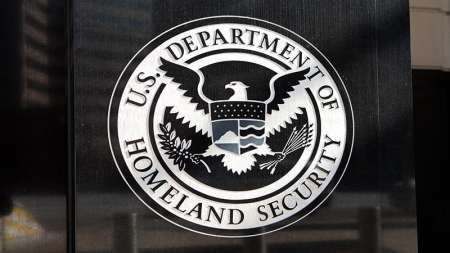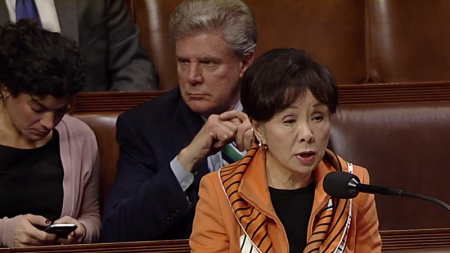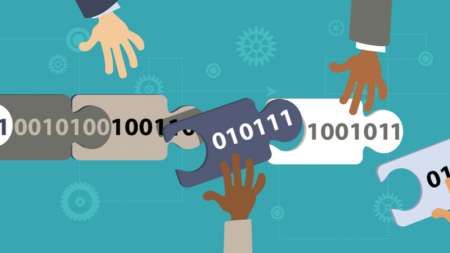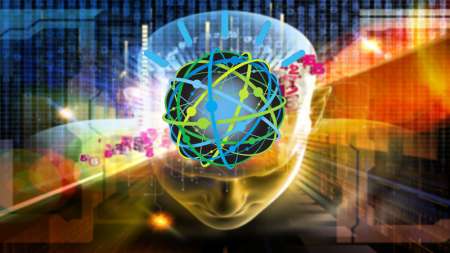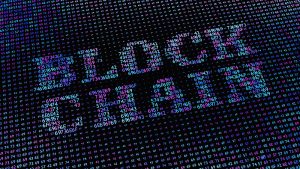The Department of Homeland Security announced last month that it will offer $800,000 in grants to startups and small businesses for blockchain counterfeiting solutions through its Science and Technology Directorate’s Silicon Valley Innovation Program. […]
Blockchain technology’s popularity has grown in recent years to full buzzword status, but government agencies are fine-tuning their use cases for the technology and picking their blockchain projects wisely, said Mark Fisk, partner in IBM Digital for Global Business Services. […]
The Department of Homeland Security (DHS) announced the topics for its Small Business Innovation Research presolicitation, with eight coming from the Science and Technology Directorate (S&T). […]
The excitement and hype around blockchain may have died down, but some Federal IT leaders are looking to blockchain to complement other emerging technologies by providing clean, trusted, and richer data to support operations and provide deeper insights. […]
Blockchain technology, along with cryptocurrencies based on that technology, received decidedly mixed views at a Senate Banking, Housing, and Urban Affairs Committee Thursday where witnesses debated the usefulness of blockchain to institutions like banks and government agencies, and shared divergent views on whether the technology has promising potential use cases. […]
A bill introduced in the House today would bring together the Department of Commerce and the Federal Communications Commission (FCC), along with private industry, to create a standardized definition of blockchain technology. […]
During a Senate Energy Committee hearing on blockchain Tuesday, senators and experts discussed the potential for blockchain to create a distributed, resilient, and secure power grid. […]
Research firm Gartner has released its 2018 Hype Cycle for Emerging Technologies report, which found technologies like artificial intelligence platform as a service, blockchain for data security, and quantum computing reaching the peak of inflated expectations, while technologies such as mixed reality, and blockchain were on the downswing of excitement. […]
During today’s House Energy and Commerce Committee Subcommittee on Digital Commerce and Consumer Protection hearing to discuss oversight of the Federal Trade Commission, Rep. Doris Matsui, D-Calif., said she was introducing legislation calling for a common definition of blockchain. […]
Colorado Governor John Hickenlooper appointed 12 members to the Council for the Advance of Blockchain Technology last week. […]
Many states are seeking to adopt blockchain technology to create more secure transactions, but that may not be the optimal route for ensuring the technology is applicable across the nation, according to Tiffany Angulo, a staffer for Rep. David Schweikert, R-Ariz., who is the co-chair of the Congressional Blockchain Caucus. […]
Welcome to MeriTalk News Briefs, where we bring you all the day’s action that didn’t quite make the headlines. No need to shout about ‘em, but we do feel that they merit talk. […]
Government and industry experts told members of the House Subcommittee on Research and Technology yesterday that blockchain technology pilots and trials are yielding promising results for supply chain and government operations applications. […]
Americans don’t trust the Federal government. The Pew Research Center found that only 18 percent of Americans say they trust the Feds. It’s small wonder we have a disruptor in chief in the White House. […]
Conventional wisdom is that it takes a fairly long time to detect a cybersecurity breach. Typically, most research suggests, it takes two to three months, possibly longer. That may not be the case anymore, though, according to a recent report. […]
The General Services Administration’s (GSA) Emerging Citizen Technology Office (ECTO) is working with a network of partners from more than 300 Federal, state, and local government entities to help evaluate, test, and implement IT modernization initiatives with emerging technologies. […]
Since blockchain first appeared in 2009 as the digital ledger for Bitcoin cryptocurrency transactions, it has steadily taken the online world by storm, in the process practically becoming a synonym for security. Even if a lot of people still don’t know what it is, they’re beginning to hear it more and more. IBM, for instance, has taken to mentioning “blockchain for security” in its TV ads. And in a sure sign of pending mainstream acceptance, a “Blockchain for Dummies” book is now available. […]
The Department of Defense (DoD) is cooking up big plans for blockchain technology, the digital ledger best known for its support of cryptocurrencies such as Bitcoin and Ethereum. The technology’s decentralized, encrypted approach holds promise for a variety of secure functions in addition to financial transactions, from cyber defense and distributed communications to protecting the digital supply chains used by deployed forces for 3D printing. A Navy officer on the Naval Innovation Advisory Council has written that blockchain could “revolutionize” the way military operations over the next decade. […]
Congress wants the Defense Department (DoD) to elaborate on its growing interest is blockchain technology, the secure digital ledger system that can be applied not only to protect financial transactions, but also many other operations such as defending against cyberattacks, protecting logistics supply chains, and securing communications with aircraft and satellites. […]
Microsoft announced that it plans to offer blockchain capabilities for its government cloud offerings. “We view blockchain as a major technological advancement with the potential for significant impact in many industries, including the public sector, through its ability to enable verifiable and immutable cross-party computation,” said Tom Keane, head of Global Infrastructure for Microsoft Azure. […]
The State Department is seeking to use blockchain technology to improve its IT platforms and to restructure the agency. The reorganization plan seeks to reduce the workforce, save Federal money, and maximize employee productivity. […]
The General Services Administration (GSA) is experimenting with applying blockchain technology to its Schedule 70 Acquisitions, a move that keeps the agency on the cutting edge of technological advances that will ultimately best serve government agencies, according to Jose Arrieta, director of IT 70 Schedule Operations within GSA’s Federal Acquisition Service. […]
As IBM continues a strategic rebound under CEO Ginni Rometty, cloud already accounts for 17 percent of its business. But with cloud still in its early stages of development, IBM is doubling down on a few key aspects of the IBM cloud that make it different and potentially a game-changer for its corporate and government clients. […]
Major innovations in blockchain are likely to happen this year with the help of Federal agencies, industry experts say, even though health care applications for the technology have yet to reach mass markets. […]
IBM signed a research initiative with the Food and Drug Administration to research whether blockchain technology can be used to securely record and share medical data. […]
The Office of the National Coordinator for Health Information Technology has announced the winners of the Use of Blockchain in Health IT and Health-related Research Challenge. […]
Industry executives urged the Federal government to do more to advance the use of blockchain technology to secure online financial transactions, and to get behind nationwide adoption of cybersecurity insurance. […]

